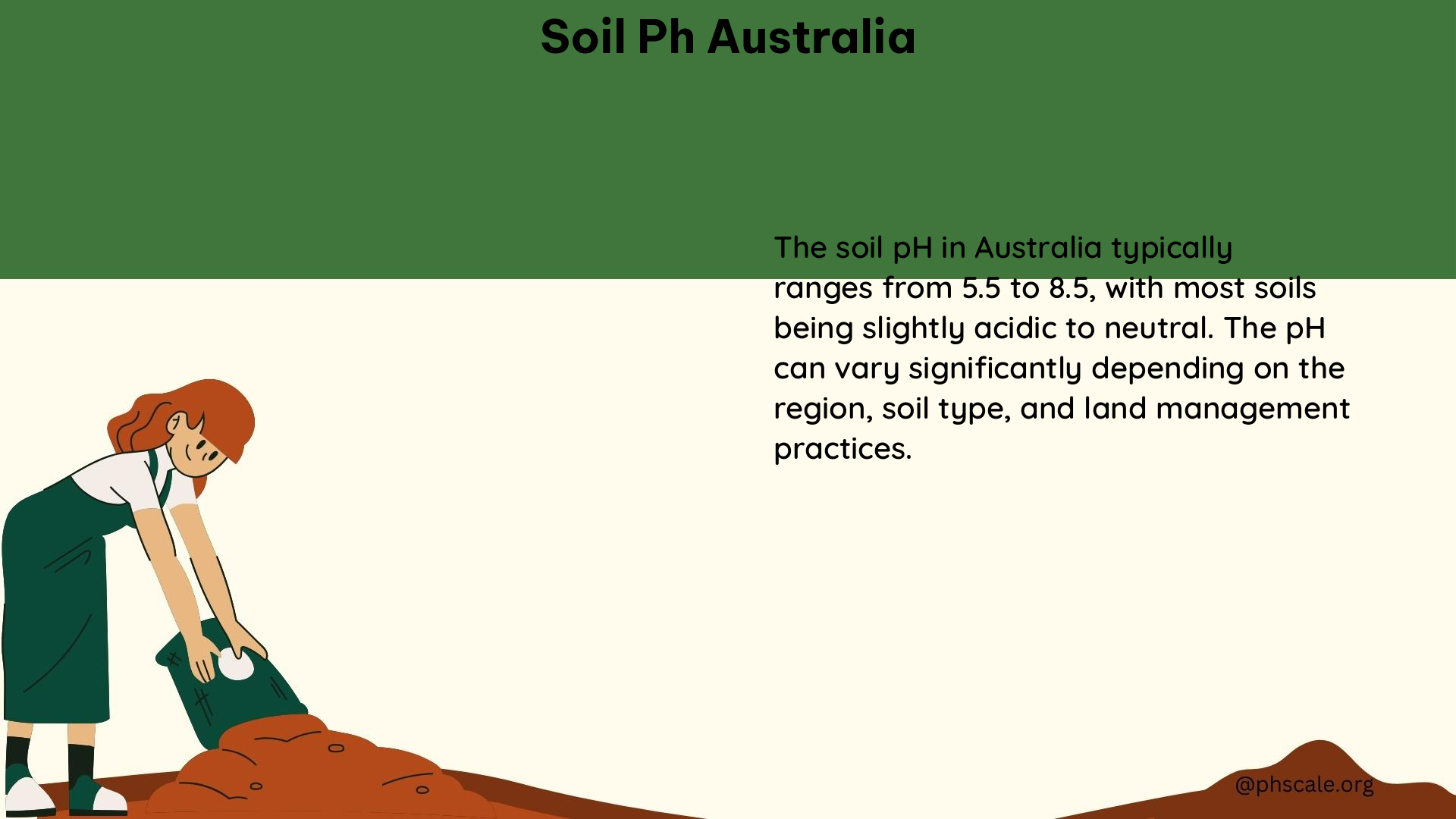Soil pH is a critical factor in the health and fertility of Australian soils, directly impacting the growth and development of plants. Understanding the ideal pH range, testing methods, and management strategies is essential for gardeners, farmers, and land managers across the country. This comprehensive guide delves into the nuances of soil pH in Australia, providing practical solutions to optimize soil conditions for thriving ecosystems.
Ideal pH Range for Australian Soils
The ideal pH range for most plants in Australian soil is between 6.5 and 7.5, which is considered neutral. This pH range allows for optimal nutrient availability and uptake by plants, ensuring their healthy growth and development.
Testing Soil pH in Australia

To accurately determine the pH level of your soil in Australia, you can use a pH test kit available at local nurseries or hardware stores. Follow the kit’s instructions to collect a soil sample, add the dye and barium powder, and compare the resulting color to the pH scale provided. It is recommended to test multiple samples from different parts of your garden or property, as pH can vary significantly across a single location.
Soil pH Patterns Across Australia
Soil pH patterns in Australia are influenced by the underlying geology and rainfall patterns in different regions:
| Region | Soil pH Characteristics |
|---|---|
| Western Australia’s Coastal Areas | Alkaline soils due to limestone |
| Tasmania’s East Coast | Neutral to acidic soils due to dolerite clays |
| Queensland | Two-thirds of soils are acidic due to high rainfall |
| Dry Areas | Generally more alkaline soils as elements are more stable |
Managing Soil pH in Australia
To manage soil pH in Australia, consider the following strategies:
Acidic Soils
For plants that prefer acidic soils, such as waratahs, rhododendrons, and blueberries (pH 5-6.5), add organic matter like compost, manure, and mulch to help acidify the soil.
Alkaline Soils
For alkaline soils, incorporate dolomite or garden lime to lower the pH. Clay soils generally require more amendments than sandy soils.
Crop Rotation and Indigenous Plants
Implementing crop rotation and choosing indigenous plants suited to the local soil conditions can also help maintain optimal pH levels.
Contaminants and Chemicals in Australian Soils
Australian soils can also be affected by various contaminants and chemicals, including:
- Acid sulfate soils with extremely acidic pH values (less than 4)
- High levels of aluminum in acidic soils, which can inhibit root growth and restrict access to water and nutrients
- Nitrate leaching from fertilizers, contributing to soil acidification
Solutions and Alternatives
To address these issues, consider the following solutions and alternatives:
- Use lime or dolomite to increase pH in acidic soils
- Implement management practices that reduce soil acidification, such as managing nitrogen fertilizer input and using less acidifying crop rotations
- Choose plants tolerant of acidic or alkaline conditions to reduce the need for pH adjustments
By understanding the importance of soil pH in Australia and implementing the appropriate management strategies, gardeners, farmers, and land managers can ensure the long-term health and fertility of their soils, supporting thriving ecosystems and productive agricultural systems.
References
- Department of Agriculture and Food. (2014). Soil pH and plant health. Retrieved from https://www.agric.wa.gov.au/soil-ph-and-plant-health
- Yates. (n.d.). What is Soil pH & How to Fix it. Retrieved from https://www.yates.com.au/garden-hub/the-importance-of-soil-ph/
- Queensland Government. (2013). Soil pH. Retrieved from https://www.qld.gov.au/environment/land/management/soil/soil-properties/ph-levels
- Soil Quality. (n.d.). Soil Acidity. Retrieved from https://www.soilquality.org.au/factsheets/soil-acidity
- ABC Gardening Australia. (2022). Soil pH-un. Retrieved from https://www.abc.net.au/gardening/how-to/soil-ph–un/13891500
